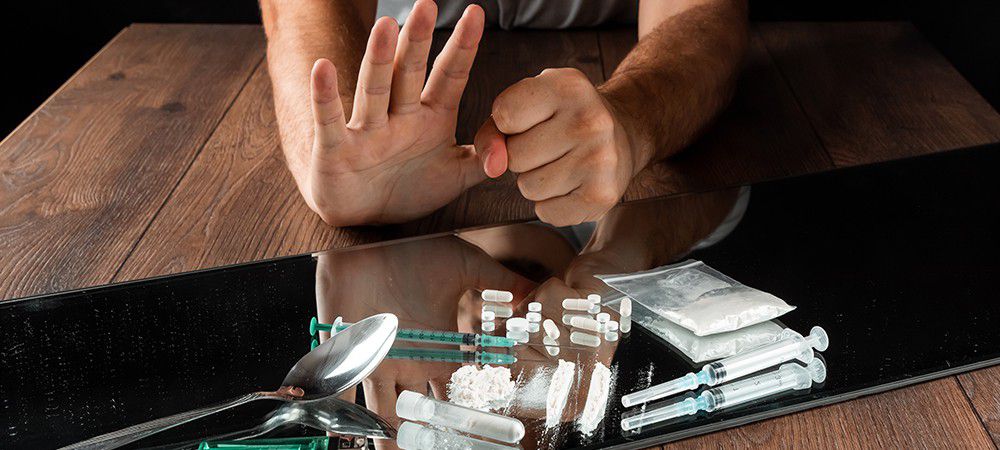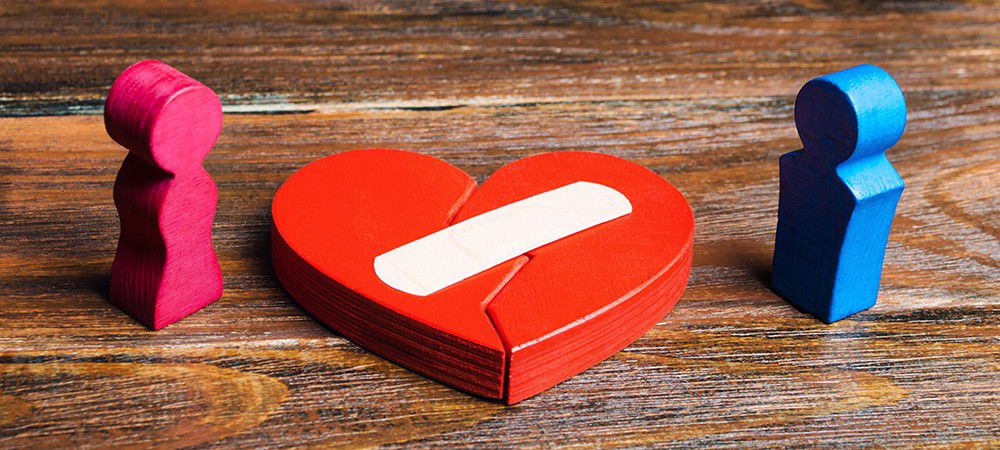
15 Ways To Overcome An Addiction
While most addictions begin with a voluntary action, no one uses a substance with the intention of becoming addicted. Most people can have a beer or accept a prescription for painkillers without incident. Tragically, others fall down a rabbit hole of addiction that can be difficult to get out of. This can have far-reaching effects on your physical and mental health, as well as your relationships and financial security.
The good news is that many people have overcome their addictions and gone on to lead full, productive lives free from drugs or alcohol. In this article, we will go over some things you can do to overcome your addiction and reduce your risk of relapse.
#1 Build Up Your Physical Strength
While addiction is largely a problem that affects the mind, it can be extremely hard on the body. Most substances come with elevated risks to your physical health, such as heart disease, liver or kidney malfunction, respiratory disorders, and long-term changes to the chemistry of the brain.
In addition, if you are overusing drugs or alcohol, you may unknowingly be neglecting other aspects of a healthy lifestyle. Your food intake may be lacking in both quality and quantity, you may have stopped going to the gym, and your sleep may be irregular and filled with nightmares.
One of the first things you should do once you have gone through the withdrawal phase of your recovery is take action to regain your physical health. Establish healthier eating patterns and engage in physical activity. Keep well hydrated and make sure you get enough sleep.
#2 Address Underlying Causes Of Your Addiction
Addiction rarely exists in a vacuum. For a lot of people, it is a symptom of an underlying problem, such as stress or trauma. If you stop using drugs or alcohol but don’t try to resolve the reasons you were using them in the first place, chances that you will suffer a relapse are high.
Addiction rehab programs exist for this very reason: to help you work through those challenges that led you to your addiction. This is done in a variety of ways, such as individual or group therapy, or therapies using creative media like music or art.
For some people, addressing the underlying causes may mean finding an alternative treatment for a condition that a medication was prescribed for. If you have become addicted to that medication, the original condition still needs to be treated. A doctor or addiction psychiatrist will be able to help you with that.
#3 Work On Mending Damaged Relationships

Unfortunately, relationships can be damaged during a period of addiction, and your recovery may need to include family therapy that will help you rebuild bridges with the people you love.
#4 Make A Relapse Prevention Plan
In many of life’s situations, having a backup plan is a good idea. We save money in case an unexpected expense arises. We take out travel insurance in case we get sick while visiting another country. When we go out during the fall, we take a sweater in case we get cold.
Addiction recovery is no different. While you should always be planning for success, you need to know and understand the warning signs of an impending relapse, and as soon as those signs start appearing, you should have a plan that you can set in motion. This could include having a trusted friend stay with you, getting in touch with your therapist, or returning to rehab.
#5 Be Willing To Let Go Of Harmful Relationships
While positive relationships are an essential part of addiction recovery, harmful relationships can set you back. Many addictions are rooted in relationships that are toxic or abusive. Some addictions are perpetuated by situations in which the addicted person is pressured by others to use drugs or alcohol.
Relationships that can be a positive element in your life should be mended. But if a relationship has potential to cause harm and hinder your recovery, you may need to evaluate whether it’s time to let that relationship go.
#6 Participate In Rehab Aftercare Activities
If you participated in inpatient or outpatient addiction treatment and your facility offers an aftercare program, you can derive significant benefit from taking part in it. Many rehab centres report lower relapse rates in clients who make use of the aftercare services, which usually include things like a support line, educational sessions, and follow-up sessions to monitor post-rehab progress.
#7 Join A Support Group
Human beings are social creatures who crave a sense of belonging. We instinctively seek out people who have been through similar challenges, so that we can feel less alone and more understood. Groups like Alcoholics Anonymous are a fantastic resource for people with addictions to get together and share their stories. Not only can you benefit from learning about the experiences of others, you can help those who are at earlier stages in their recovery than you.
If Alcoholics Anonymous and Narcotics Anonymous are not your cup of tea, you may be able to join a group therapy program in your area. Online support groups are also becoming more mainstream than ever before, popular because of how accessible they are.
#8 Avoid Big Gaps In Your Time
Author Shelley Shepard Gray said that “idle hands make fretful minds”. If you are new to recovery, large swathes of time can be overwhelming to you. Unoccupied time can give you too much time to think. You may start rehashing traumatic events from the past or questioning your self-worth. Depression and anxiety can creep in, starting as a trickle and gradually becoming a flood. Ultimately, you may start to feel nostalgic for your days of using drugs or alcohol, and this can set you on a downward slope to physical relapse.
If you are not working, use the time to work towards a goal. Pursue a hobby that may have become neglected during your period of active drug use. Embark on a project that has been at the back of your mind, like writing a book or redecorating your house. Take a class in something you have always wanted to learn. Even if you lack the financial resources to pay for a class, there are many free online offerings.
#9 Be Aware Of Codependency In Yourself And Others
Codependent relationships are extremely common in people with addictions. In a relationship like this, one person makes extreme sacrifices to make the other person happy. The other person, for their part, is only too glad to be the recipient of all of the attention. Codependency can exist in any kind of relationship, be it between siblings, a parent and a child, friends, or intimate partners.
In many cases, it is the loved one who is codependent and going out of their way to please the person with the addiction. This provides a perfect environment for the addiction to continue.
Codependent relationships are not necessarily doomed, but it takes work on the part of both people to stop the codependent behaviour.
#10 Learn How To Love Yourself
It is a tragic reality that many people with addictions suffer from low self-esteem. Addiction is often a precursor to suicidal thoughts and behaviour. Relapse can intensify this feeling, leaving you feeling as if you have failed in your attempts at recovery.
No matter where you are in your addiction journey, you need to know that you matter, that your life is valuable. Instead of focusing on trying to get other people to love you, learn how to love yourself. Remind yourself daily – hourly if necessary – of the unique qualities that make you special.
#11 Keep A Journal
Journaling can bring you all kinds of benefits. Writing engages both sides of the brain – the logical and the emotional. This makes it a cathartic activity that can help you in your healing, and it can help you find solutions to challenges. It reduces stress and boosts creativity, and if you build up a collection of journal entries, you will be able to look back at them after a period of time and see how much progress you have made.
#12 Celebrate Your Sobriety Milestones
Addiction recovery is hard work. It is a long process that may involve a lot of difficult self-reflection and tough decisions. And as is the case with many tough challenges, success should be rewarded. Whether you have maintained sobriety for a month, a year, or a decade, take a moment to congratulate yourself and reflect on how far you have come. Make yourself a sobriety birthday cake, enjoy a celebratory picnic with your closest loved ones, or buy yourself that book or pair of shoes you’ve had your eye on.
#13 Look For Natural Dopamine Boosts
Many substances result in elevated levels of dopamine, which make you feel good. Dopamine is a chemical released by the brain that feeds our sense of reward and motivation. That is the hook that results in a lot of people becoming addicted, and it is what makes it so difficult to quit. If you are early on in your recovery journey, you may struggle when it comes to finding a sober way to feel good. Fortunately, nature has provided us with ways to boost dopamine naturally. These include:
- Boosting your protein intake
- Doing exercise you enjoy, from yoga to going for a run
- Getting enough sleep
- Listening to music
- Spending time in the sun (with proper sun protection)
#14 Don’t Give Up If You Suffer A Relapse
Relapse can happen to people who are doing everything right. You never know when some crisis will come along and knock you off your feet. Some people relapse after a stressful life event like job loss or the death of a loved one. Others simply become victims of their own self-sabotaging thoughts.
It is important to understand that relapse does not mean your treatment has failed. Addiction is an illness, and like many illnesses, there can be setbacks during your recovery. If you suffer a relapse, identify what triggered it, learn from it, and continue with your recovery plan. Some people benefit from returning to rehab for a while, to reinforce what they have learned. Others are able to adjust elements of their lifestyle or alter their thinking with the help of a therapist. The most important thing is to not give up.
#15 Visualize Success
People tend to be most successful when they can visualize success. Create a picture in your mind of what your life will look like without cravings, and without all of the negative impacts of addiction. Imagine how you will handle stressful events without needing to use drugs or alcohol, and allow yourself to feel the sense of accomplishment that will come from that. Focus on what your outcome will be and how much better your life will be without the substance that you became addicted to.
At Thousand Islands Rehab Centre, we will help you build that resilience and develop the skills and tools to live a happy, productive life free from drugs or alcohol. With a customized addiction treatment program, you can create endless opportunities for yourself. As a top addiction rehab, call us today for more information, or to reserve your spot.


